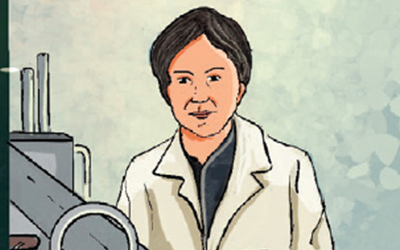2.1 How Did Our Understanding of the Universe Change?
-
1 Opener
-
7 Activities
-
1 Video
-
9 Articles
Introduction
The Big Bang hasn’t always been the generally accepted explanation of how our Universe came to be. In fact, our views on the origin and structure of the Universe have changed drastically over the last thousand years. As new thinking and evidence have built upon one another, our understanding of the Universe has evolved.
More about this lesson
- Describe and explain how views of the Universe have changed over time.
- Explain how an evolution of ideas can lead to a scientific revolution; provide examples of some scientific revolutions.
Claim Testing – Authority
Preparation
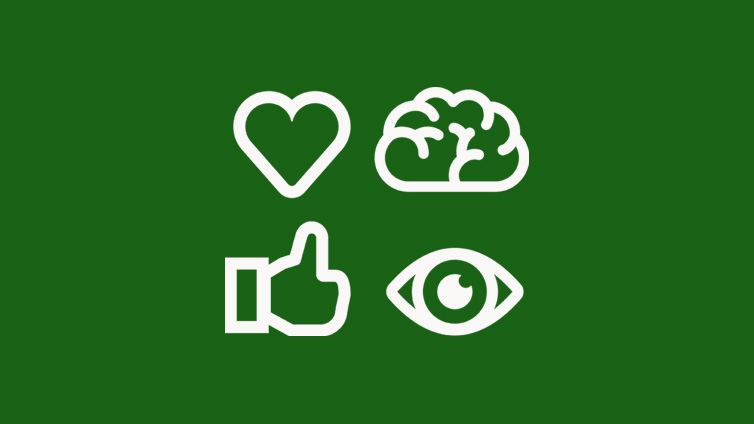

Purpose
Authority is one of the claim testers that helps us decide what to believe, so it can be puzzling when two authorities disagree. In this activity, which is part of the claim testing progression, you’ll dig into the concept of authority to gain a better understanding of what it means, how it’s used, and how its meaning can change over time.
Practices
Reading, sourcing
At this point, you have had multiple opportunities to practice your reading skills for a variety of media (articles and videos). However, in this activity, you will be pushed to think about what and how you read. As historians and critical thinkers, you should be curious about where you’re getting your information and equipped with the skills to evaluate a source’s claims. This lends itself to the historical thinking practice of sourcing—which is necessary in all subjects and in life. You need to develop your claim testing skills so that you can make, evaluate, defend, and refute claims as well as the claims of others.
Process
In this lesson, you’ll spend a lot of time thinking about how our understanding of the Universe has changed over time. You’ll dig into the idea of authority, which can be an important influence on how people’s thinking changes over time. What makes someone an authority? Achieved authority is when someone has earned their authority. It usually means a person has worked to earn that status. So, for example, someone becomes licensed to practice law or medicine—they have studied to achieve their status. If someone has attributed authority, it’s usually based on something they can’t control, like their gender, race, age, or how popular they are.
Talk about achieved versus attributed authority with your class, and how logical, credible, and reliable arguments can bolster a person’s authority. Consider how achieved authorities are often cited by other people in their field or have a license or credential that deems them an authority.
When someone is consistently logical, credible, and reliable, we generally trust them to be a good source of information. In history, we engage in “sourcing” all the time. Do you know what sourcing is? How do you engage in sourcing in everyday life? Discuss your answers with your class.
Now that you have a good sense of the elements that go into someone being deemed an authority, you are going to decide the “best” authority to either make or test a variety of claims.
Take out the Claim Testing – Authority worksheet and read about the scientists, and then answer the questions. Be prepared to discuss your answers with your class!
DQ Notebook
Preparation


Purpose
You’ll think about the unit driving question, and then you’ll respond to it in writing. Remember, the driving question exists to help you really focus on the big idea of the unit, and to help you connect all the knowledge you’re acquiring. You’ll revisit the driving question at least twice in every unit. You should think about these questions from many perspectives using your understanding of varied disciplines—and even your new appreciation of scale!—to really explore them deeply.
Process
Your teacher will let you know which of these questions you should think about:
- How and why do individuals change their minds?
- How and why did human understanding of the Universe change?
Use DQ Notebook Worksheet – Unit 2 to respond to the assigned question as best you can. Be prepared to talk about these ideas with your class.
Vocab Tracking
Preparation

Purpose
This repeated activity should help you become familiar with a process for understanding unfamiliar words anytime you encounter them in the course.
Process
Take out your vocab tracker and be sure to record new and unfamiliar words on it according to your teacher’s instructions.
Crash Course Big History: Why Cosmic Evolution Matters
Vocab Terms:
- cosmic bubble
- cosmic inflation
- expand
- gravity
- theory
- universe
- view
Summary
Our Universe gives us a lot more questions than answers. The scientific approach to the fundamental human desire to know where we came from—and where we are going—has produced a variety of theories. Some are more widely accepted, such the Big Bang, while others are on the fringe, such as cosmic simulation. None can be proven absolutely, but to pursue answers about the distant past and distant future helps us to understand and accept where we are right now.
Crash Course Big History: Why Cosmic Evolution Matters (10:59)
Key Ideas
Purpose
This video invites you to understand the Universe not just in terms of the Big Bang and how it all started, but also the various theories of how it will end. Of course, there are many theories on this enormous topic--this video will introduce you to some of them.
Process
Preview
In addition to knowing the history of events, it is essential to ask why they matter. Our ability to grasp how the Universe grew and changed over nearly 14 billion years—and how it may eventually expire—gives meaning to our place in it. Theories of cosmic inflation, multiverses, and cosmic simulation may boggle the mind, but they are currently our most educated guesses.
Key Ideas – Factual
Think about the following questions as you watch the video:
- What are the advantages of knowing and understanding history?
- What is the basic idea behind the theory of cosmic inflation?
- What was the eventual outcome of an “unequal distribution of energy” in the Universe?
- In what way can the multiverse theory be compared to the theory of natural selection in animal species?
- What are three possible ways that the Universe may eventually end? Briefly describe each.
- What is meant by cosmic simulation, and what might make someone believe in it?
Thinking Conceptually
What facts did scientists use to come up with the theories described in the video? Do you have an alternative theory about how the Universe formed and how it might eventually expire? What facts do you have to back up your theory?
Dr. Wu and the Left-Handed Universe: Chien-Shiung Wu – Graphic Biography
Preparation

Summary
Chien-Shiung Wu was born in a small town in China, but she moved to the United States in 1936 to study physics. As both a woman and an Asian immigrant during a time when neither identity was particularly welcomed in university science departments, Dr. Wu overcame many obstacles to reach the pinnacle of her field. Her work in nuclear physics earned her a job working on the Manhattan Project, helping build the world’s first nuclear fission reactor. But her biggest discovery came in 1956, when her experiment disproved the law of parity. Her work launched a chain of collective learning that is today helping physicists understand why any matter escaped the Big Bang.
Purpose
Chien-Shiung Wu is often acknowledged as one of the greatest physicists of the twentieth century. Her contributions to the Manhattan Project were instrumental in building the world’s first nuclear reactor, and her discovery of a violation of parity changed our understanding of how the Universe works. But many people don’t know her name. This first graphic biography introduces a key figure in our modern origin story. It also presents you with an opportunity to begin asking why some people get left out of that story.
Process
Read 1: Observe
As you read this graphic biography for the first time, review the Read 1: Observe section of your Three Close Reads for Graphic Bios Tool. Be sure to record one question in the thought bubble on the top-right. You don’t need to write anything else down. However, if you’d like to record your observations, feel free to do so on scrap paper.
Read 2: Understand
On the tool, summarize the main idea of the comic and provide two pieces of evidence that helped you understand the creator’s main idea. You can do this only in writing or you can get creative with some art. Some of the evidence you find may come in the form of text (words). But other evidence will come in the form of art (images). You should read the text looking for unfamiliar vocabulary words, the main idea, and key supporting details. You should also spend some time looking at the images and the way in which the page is designed. By the end of the second close read, you should be able to answer the following questions:
- What were some challenges that Chien-Shiung Wu faced as she became a physicist? How did she overcome these challenges?
- What does this comic mean by saying the Universe is “left-handed”? What role did Wu play in this discovery?
- Why was Wu’s 1956 experiment important to collective learning?
- Looking at just the images in this comic, what information does the artist tell you with the art?
Read 3: Connect
In this read, you should use the graphic biography as evidence to support, extend, or challenge claims made in this unit of the course. On the bottom of the tool, record what you learned about this person’s life and how it relates to what you’re learning.
- Had you heard about Chien-Shiung Wu before reading this comic? Why do you think someone like Wu isn’t featured in more of the big stories about collective learning?
To Be Continued…
On the second page of the tool, your teacher might ask you to extend the graphic biography to a second page. This is where you can draw and write what you think might come next. Here, you can become a co-creator of this graphic biography!
Scale – Changing Views Timeline
Vocab Terms:
- astronomer
- brightness
- calculus
- canon
- correlation
- cosmos
- diagram
- eclipse
- expand
- fluctuation
- galaxy
- geocentric
- heliocentric
- law of motion
- nebulae
- observation
- observatory
- orbit
- plague
- planet
- publication
- redshift
- Renaissance
- revolve
- supernova
- telescope
- the Inquisition
- universal gravitation
- variable star
Preparation

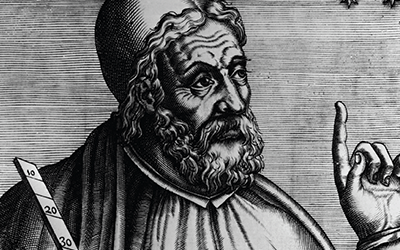
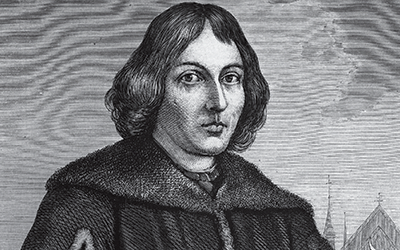
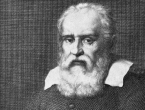
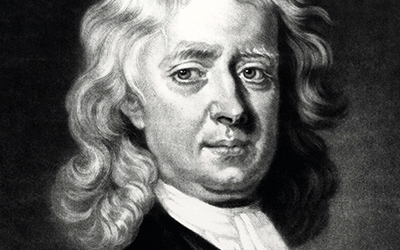
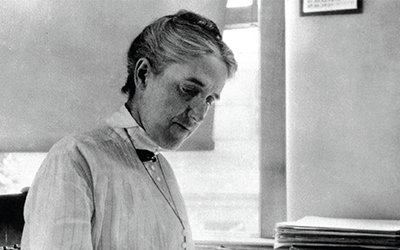
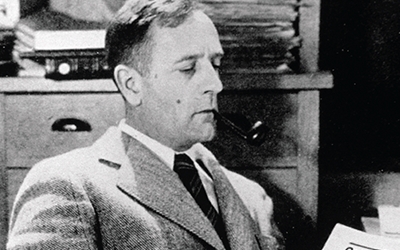

Purpose
In this activity, you’ll read about different scientists’ views of the Universe, and then place the key information on a timeline. The aim is to get better using timelines as a tool to help you understand changes in thinking over time.
Practices
Scale
Timelines are used to represent the past on a variety of different scales. As you begin to add details to a timeline, think about how changing the scale (zooming in or out), determines the level of detail that will be included in your timeline. If you zoom way out, there will likely be less detail and more of it will be at a national or global scale. If you zoom in, you can provide more information and pay attention to historical events or processes at the personal, local, and regional scales.
Process
You are going to create a timeline that represents how each of these scientists understand the Earth, the Solar System and the Universe. This is the first time you will work on your class timeline. Over the year, you will add to your timeline as you come across important events, people, and ideas.
Your class will work in three groups.
- Group A: Ptolemy and Copernicus
- Group B: Galileo and Newton
- Group C: Leavitt and Hubble
Working with your group, do the following:
- Read the articles about your group’s assigned scientists.
- Create a timeline that includes the following information about each of your assigned scientists:
- Birth and death dates of the scientists.
- The major contributions they made (including their theories about our understanding of the Universe, such as a heliocentric view).
- Who and what influenced their thinking.
- Create a story arc of how one scientist’s thinking progressed to the next.
When you’ve all finished your timelines, a representative from each group will present their story arc to the class. Discuss with the class how these individual timelines combine into a longer-term understanding about our thinking.
How does creating these timelines influence our understanding of how our views changed over time? How much detail is the right amount of detail to allow us to capture the larger narrative? Are there details you don’t need? Are there details that should be added?
Now, work with your group to refine your timeline and then add your work to the class timeline.
"Standing on the Shoulders of Invisible Giants"
Vocab Terms:
- adaptations
- collective learning
- flourish
- influence
- manuscript
Preparation
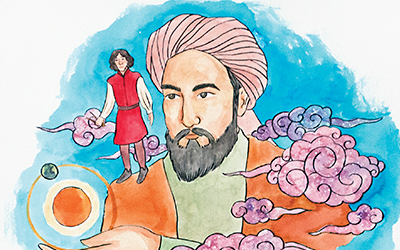

Summary
We often think of scientists as these lone geniuses who had “aha!” moments and discovered the secrets of the Universe, but in reality, science is a collaborative project. Scientists build on the work of others, including thinkers from other times and places. Science is an excellent example of collective learning, which is the human ability to share, preserve, and build upon knowledge over time. Historians are constantly trying to learn about how collective learning changed across multiple societies.
Purpose
This article explains the concept of collective learning by talking about the history of science. It discusses some of the different ways knowledge is shared across different thinkers, groups, and societies. It will give you a set of questions to ask as you explore the history of collective learning.
Process
Skimming for Gist
Fill out the Skimming for Gist section of the Three Close Reads worksheet as you complete your first close read. As a reminder, this should be a quick process!
Understanding Content
For this reading, you should be looking for unfamiliar vocabulary words, the major claim and key supporting details, analysis and evidence, and claim testers. By the end of the second close read, you should be able to answer the following questions:
- Who said, “If I have seen further, it is by standing on the shoulders of giants”? What is meant by this?
- When and where was the golden age?
- What are “invisible giants?”
- What is collective learning and who is involved in it?
- What are some difficulties with writing the history of collective learning? Provide at least two.
Thinking Conceptually
At the end of the third close read, respond to the following questions:
- What does the image at the top of the page suggest about the relationship between Copernicus and al-Tusi? Do you agree with this suggestion?
- What’s an example of collective learning in your life?
Views of the Universe Debate
Preparation

Purpose
This debate will give you a better understanding of the viewpoints of different scientists and insight into why some people might have resisted or argued against new models of the Universe.
Practices
Claim Testing
A good debater will back up their claims with evidence. They will also press their opponents to back up their claims with support. Remember to use claim testing as part of your debate and debate prep.
Process
For this debate your teacher will assign you to one view of the Universe (Ptolemy’s, Copernicus’s, Newton’s, or Hubble’s), and your group will need to prepare an argument for why your view of the Universe was “best.” In this case, “best” means your viewpoint was the most important to the society in which it developed and it contributed the most to collective learning. Make sure to find out which group you will be debating against so that you can prepare reasonable counterarguments.
Your class has been split into four groups because you are going to have two separate debates, Debate 1 and Debate 2. For example, Debate 1 might be Ptolemy vs. Copernicus, and Debate 2 might be Newton vs. Hubble. The Debate 1 teams will watch the Debate 2 teams debate, and vice versa. You’ll also evaluate one another, practicing using the debate rubric.
Review the Debate Prep Worksheet before you get into your groups to prepare. In this example, Team A represents Ptolemy’s position and Team B represents Copernicus’s.
- Coin toss to determine which side goes first.
- Team A (Ptolemy) has 4 to 6 minutes to present their position.
- Team B (Copernicus) has 4 to 6 minutes to present their position.
Break: Each team has 3 to 5 minutes to prepare a 2-minute rebuttal. - Team A has 2 minutes to present their rebuttal.
- Team B has 2 minutes to present their rebuttal.
Break: Each team has 3 to 5 minutes to prepare a 1-minute closing statement. - Team A has 1 minute to present their rebuttal.
- Team B has 1 minute to present their rebuttal.
Debate ends: Your teacher will tally the rubric scores to determine the winner of each debate. In case of a tie, your teacher will name the winner.
Review the Debate Prep Worksheet with your teacher—this is going to be really useful in helping you prep for the debate. Also, take a look at the Debate Rubric. Since this is the first debate, you’ll practice using the rubric to evaluate one another. Winners of each debate will be declared, but this will be informal since it’s the first one. Normally, your teacher will determine the outcome of debates, but this time you’ll help with the process so you get familiar with the debate rubric (this also helps ensure you pay attention when you’re part of the audience rather than part of the debate).
"The Missing Link?: The Maragha Observatory"
Vocab Terms:
- astronomer
- celestial
- found
- heliocentric
- lunar
Preparation
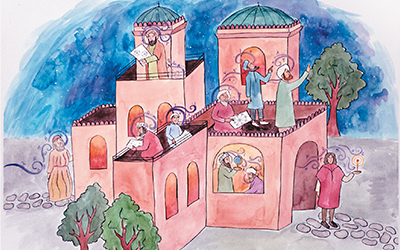

Summary
The arrangement of the stars and planets have fascinated thinkers for millennia. Ancient astronomers like Ptolemy used to think that the Earth was at the center of the Universe. Centuries later, Copernicus revolutionized astronomy by putting the Sun at the center. But what happened between Ptolemy and Copernicus? While Copernicus was the first to put the Sun at the center of his model, there is evidence that other thinkers before Copernicus, including Muslim scholars, were challenging Ptolemy’s model in important ways. Historians debate how or whether these Muslim scholars indirectly contributed to the development of heliocentric models.
Purpose
In this lesson, you will learn about different perspectives on how the Universe is organized. Different thinkers came up with models of the Universe, some which put the Earth at the center, and others which put the Sun at the center. This article about the Maragha Observatory describes a school of medieval Muslim astronomers who might have influenced the Sun-centered model. You’ll learn about a debate between historians over this possible influence, and you’ll get to think about what evidence these historians use to support their ideas.
Process
Skimming for Gist
Fill out the Skimming for Gist section of the Three Close Reads worksheet as you complete your first close read. As a reminder, this should be a quick process!
Understanding Content
For this reading, you should be looking for unfamiliar vocabulary words, the major claim and key supporting details, analysis and evidence, and claim testers. By the end of the second close read, you should be able to answer the following questions:
- What is the heliocentric model?
- What is one important contribution of a scholar who worked between the times of Ptolemy and Copernicus?
- What was the Islamic Golden Age?
- Why does the author think astronomy was a major field in the Islamic world?
- What was the Maragha Observatory and why was it significant, according to the author?
- Why do some historians of science think the Maragha Observatory influenced Copernicus’s heliocentric system? Give at least two reasons.
- Look at the image of the two models of the Universe. What are two differences between them?
Thinking Conceptually
At the end of the third close read, respond to the following questions:
- Based on the evidence from the article, do you think it is likely that the work of scholars at the Maragha Observatory influenced Copernicus’s Sun-centered model? What evidence convinced you? What evidence didn’t convince you? And why?
- Look at the image at the top of the page. Who are the figures in the image, and how do they relate to one another? Do you think this accurately represents how knowledge of the Universe changed?
